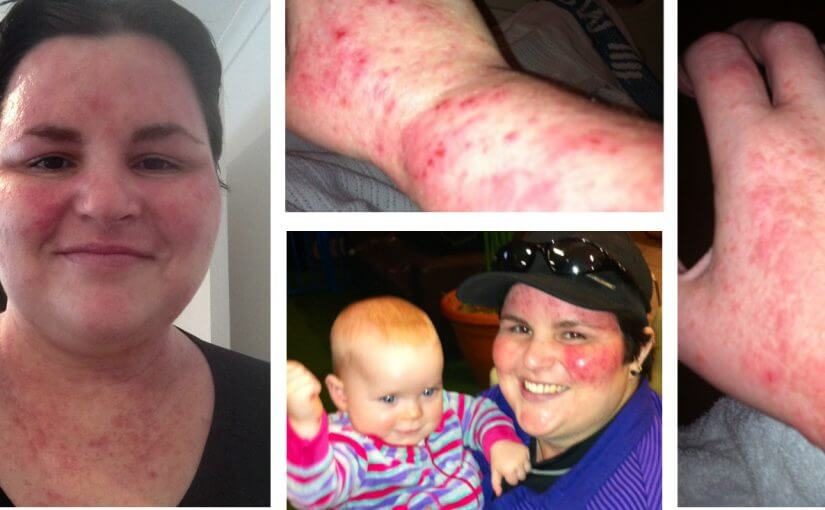Kerry Thornton from Werribee in Victoria spent years in the dark over her rare condition. She was so impressed with the help that she got from various pathology professionals in her diagnosis, she entered the profession herself.
Kerry had been suffering, unknowingly, since her teens from a chronic, idiopathic skin condition called Actinic Prurigo. It is a rare allergy to light which means she cannot spend time in the sun or under fluorescent lights without reacting. Even heat from cooking is a trigger.
“Looking back I think I’d had Actinic Prurigo since I was fourteen. I remember coming out in a really terrible rash on my arms after I’d been out in the sun.
But it wasn’t until I was 23 when my dermatologist sent me for light therapy to treat eczema that I realised something was seriously wrong.
The next morning my skin was really red and itchy and I had terrible pains all through my body. Any time I moved, my skin would crack and bleed. I spent four weeks in hospital covered in wet bandages to ease the pain.
It took two years of pathology tests to rule out a lot of other possible causes and to reach a diagnosis. After all that time it was a relief to have answers.”
Eight years after the diagnosis Kerry’s life has had to change a lot. Her windows have been fitted with metal shutters to block out the sun, she can only work part time due to the fluorescent lights used in the collection centre and she has to limit her outdoor activities (even on an overcast day she could still have an allergic reaction).
One thing that hasn’t changed since diagnosis though is that Kerry still relies on pathology to keep her healthy.
“I’m on a lot of medication and all of the meds have their own side effects on my kidneys and liver so I have to have monthly tests to monitor my health.”
It hasn’t been all bad news for Kerry though. She’s learned to live with her allergy and she’s never let it hold her back. After countless interactions with collectors during the diagnosis of her condition Kerry was so impressed by how they helped her that she decided to follow in their footsteps.
“In the two years that I spent going for various tests I chatted a lot with the collectors who were taking my blood. I got really interested in their work and they started telling me all about the courses I could do in order to qualify.
I went through 12 months of phlebotomy training so I could help with diagnosis for patients like me and I’ve been working in pathology for the last eight years now.
I think my own experiences help me in my work a lot. I’m very conscious of how the patient could be feeling. Even if they are just having routine tests they could be anxiously trying to get answers, just like I was.”

